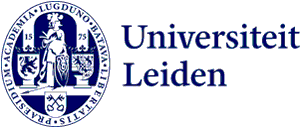
Dr. Hans Petschar delivers Sixth Annual Austrian Studies Lecture
On April 14, 2025, Dr. Hans Petschar, the recently-retired Director of the Bildarchiv und Grafiksammlung at the Austrian National Library in Vienna, delivered the Sixth Annual Austrian Studies Lecture 'Austria’s Present Past: A visual journey through Austrian history 1925 – 2025'. The talk draws from a recent exhibition that he curated entitled 'Ein Jahrhundert in Bildern: Österreich 1925-2025'.
To introduce Dr. Petschar, Prof. dr. Sarah Cramsey delivered the following remarks:
What does it mean to live in uncertain times? When news is deemed fake…When science is undermined….When art is politicized…When knowledge as an entity is under attack, here in the Netherlands and around the world?
Well, I’m a historian. And I bring tidings of solace to all of you. ALL TIMES, ALL HUMAN TIMES ARE UNCERTAIN. As Stefan Zweig wrote in Brazil, in the early 1940s displaced, stateless and uprooted thousands of kilometers and oceans away from his beautiful home in Salzburg, 'it remains an irrefragable law of history that contemporaries are denied a recognition of the early beginnings of the great movements which determine their times.'
So all times are uncertain.
OK. So what, what does that mean for us, who are living in uncertain times now, in the one life that we have been thrown into? We have a choice, even in uncertain times.
We have a choice, how we live and I chose to 'live in truth' like Vaclav Havel’s greengrocer lived in the 'power of the powerless.'
Well that sounds nice, but what does that mean? How do we live in truth today, here, and tomorrow, wherever we might find ourselves? The answer to this question begins, I think, with our speaker tonight. I am so honored to introduce our speaker for the Sixth Annual Austrian Studies Lecture; Dr. Hans Petschar.

Dr. Hans Petschar, Ph.D. studied History and German Literature at the University of Salzburg. He has published in the fields of Visual History, Public History, Library History and Contemporary Austrian History and lectured at the Universities of Salzburg and Vienna. From 2002 to recently, he worked as director of the Picture Archives and Graphics Department at the Austrian National Library. He always has the best power points, as you will see soon. He is the representative of the Austrian National Library at the Board of Directors of European National Librarians. At the Austrian National Library Hans Petschar curated several annual exhibitions: 'Alpha & Omega' (2000), 'The Young Republic'.(2005), 'Old-Austria. Peoples and Lands of the Habsburg Empire' (2011), 'Night over Austria' (2013), Der ewige Kaiser: Franz Joseph I. 1830-1916 (2016), The Danube. A Journey into the Past' (German: 'Die Donau. Eine Reise in die Vergangenheit (2021), 'From Vienna to the White House: Yoichi Okamoto & the American Century' and the exhibit he will show us today 'Ein Jahrhundert in Bildung: Ostereich 1925-2025.'
You can find published exhibition guides to most of these exhibitions, which have been exhibited across the world, from Washington DC and New Orleans to Vienna and beyond. Hans has been a keen advocate for digitization initiatives of his Archive and he estimates that almost 90% of the visitors to his library/archive come in digital form. With support of the by the Austrian Science Fund on the history of the private library of the Austria-Hungary’s ruling dynasty Habsburg-Lothringen from 1780 – 1835 and from 1835 – 1821. He has published widely, including a beautiful volume on the Marshall Plan. Hans served as Guest Professor and Marshall Plan Professor at the University of New Orleans with his friend and colleague Prof. Guenter Bischoff, that’s where I first met him and his wife, Theresia who has kindly joined us tonight.
Besides meeting him I had the opportunity to walk through the Austrian National Library with Hans, it was wonderful. He sees thing critically but aesthetically. That is hard to do. He is a very busy and dynamic person, but he is a very kind and available colleague. He is humble and this introduction is probably embarrassing him. But we are very lucky to be here tonight to celebrate this beautiful exhibit which spans a century but also spans his entire career-which we celebrate together tonight.
His career, his curation and digitizationwork in Museums, his books, his outreach, his teaching and his incredible knowledge base have helped create culture. Culture, nuanced, contextualized culture, culture that makes us think, challenges us, this CULTURE is what helps us 'live in truth' on a daily basis. When I take my daughters to a museum or when I visit the archive of a museum for my own research, I am, in fact, doing something quite brave. I am setting myself up to encounter something that will challenge me, make me think about beauty, make me think about the past, make me SLOW down and think about my present, our present in a different way. That’s magic. But it’s magic that takes a lot of hard, relentless work. Hans has spent his career doing that work so that others can, more comfortably and viscerally, live in truth and by doing that he gives us a roadmap to navigate uncertain times.
And so please join me in welcoming Dr. Hans Petschar.
